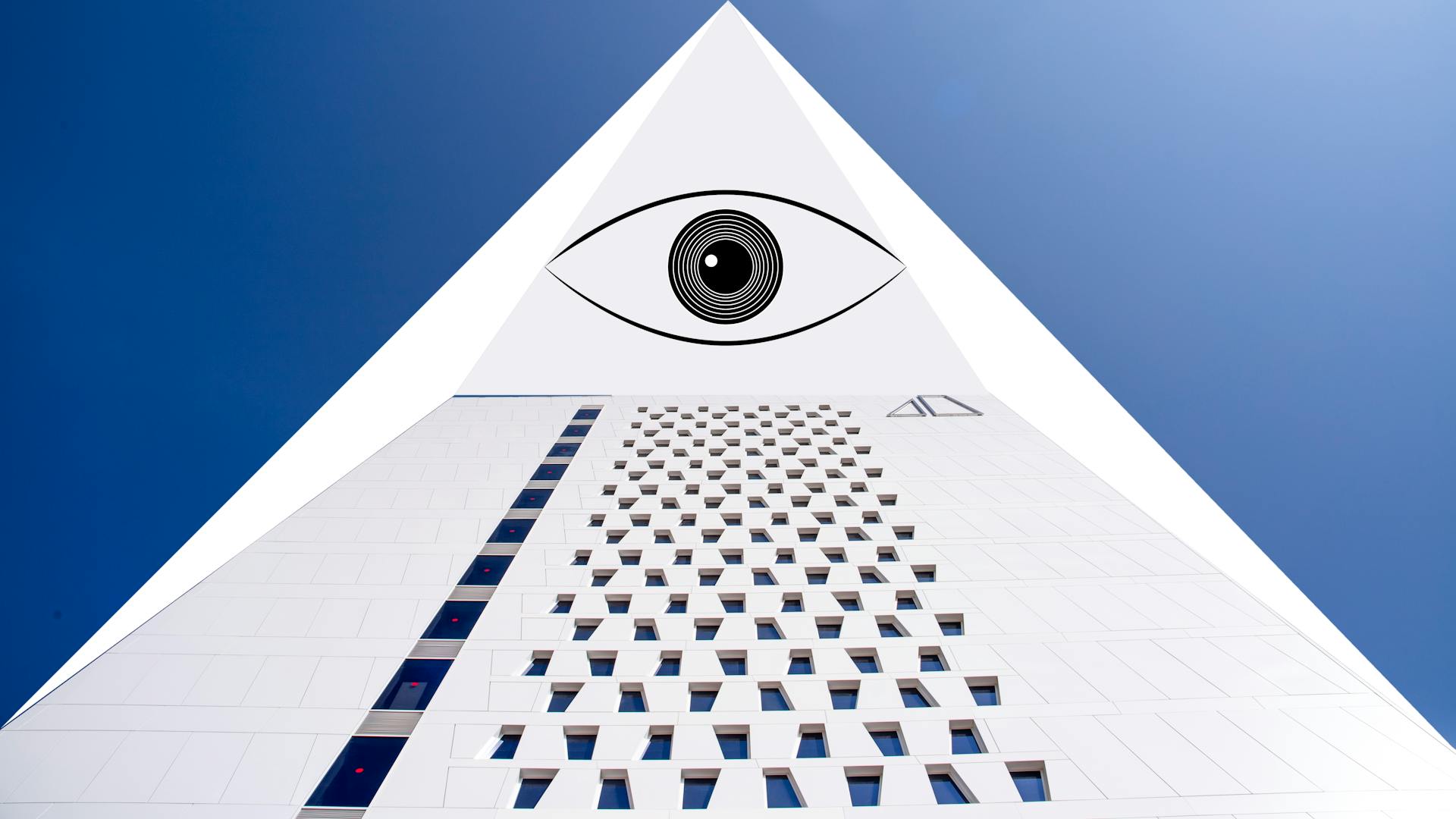
Red eyes in Shih Tzus can be a concerning issue for many owners.
Red eyes in Shih Tzus are often caused by a condition called conjunctivitis, which is an inflammation of the membrane covering the white part of the eye.
Shih Tzus are prone to conjunctivitis due to their flat face, which can cause their eyes to be more susceptible to irritation.
In some cases, red eyes in Shih Tzus can be a sign of an underlying issue, such as an eye infection or a foreign object in the eye.
Regular cleaning of the eyes can help to prevent red eyes in Shih Tzus.
Causes of Red Eyes in Shih Tzus
Red eyes in Shih Tzus can be caused by a variety of reasons, including an eyelash growing inward, known as distichiasis, which can cause discomfort and lead to rubbing of the face on surfaces.
Some common eye conditions that can cause red eyes in Shih Tzus include conjunctivitis, or pink eye, which is often caused by allergies or objects in the eye, and glaucoma, a painful disease that can lead to blindness if not treated quickly.
Conjunctivitis can be caused by allergies, objects in the eye, or other factors, and symptoms include discharge from the eye, swelling, noticeable discomfort, and a red or pink appearance of the eye.
If your Shih Tzu has red eyes, it's essential to have them examined by a veterinarian to determine the underlying cause, as some conditions, like glaucoma, require immediate veterinary care.
A full ophthalmologic exam and series of tests will help narrow down the cause of the red eyes, and your vet will recommend the best course of treatment.
In some cases, red eyes in Shih Tzus can be treated with medicated eye drops or oral medication, but in more severe cases, surgery may be necessary to remove an eyelash or other foreign object.
Uveitis, an inflammation in the interior part of the eyeball, can also cause red eyes in Shih Tzus, and symptoms include eye redness, cloudiness, blood inside the eye, and sensitivity to light.
If your Shih Tzu is experiencing any of these symptoms, it's crucial to seek veterinary care immediately, as uveitis can lead to blindness if left untreated.
Symptoms and Diagnosis
If your Shih Tzu has red eyes, don't panic. Squinting or blinking is a common symptom of conjunctivitis in dogs, and it's usually accompanied by swelling and redness.
Swelling and redness are noticeable signs that your Shih Tzu's eye is inflamed. In some cases, you might see a watery discharge, either clear or with some mucus.
A watery discharge can be clear or have some mucus, and it's often a sign that your Shih Tzu needs medical attention. If you notice any of these symptoms, bring your pup to the vet right away.
Your vet will determine the actual cause of the problem and prescribe the right treatment. They might prescribe medications for inflammation or an antibiotic ointment if a bacterial infection is present.
Here are some common symptoms of conjunctivitis in dogs:
- Squinting or blinking
- Swelling and redness
- Watery discharge, either clear or with some mucus
In rare cases, your Shih Tzu might need surgery if a blocked tear duct causes the issue. If you're unsure about the cause of your Shih Tzu's red eyes, it's always best to consult with a vet.
Treatment and Prevention
If your Shih Tzu has red eyes, it's essential to determine the cause to choose the right treatment.
Bacterial conjunctivitis, which causes pink eye, can be spread through contact with other dogs, while viral conjunctivitis can be airborne and spread without direct contact.
Antibiotics are usually prescribed for bacterial pink eye, while viral conjunctivitis treatment often includes a medication to reduce swelling.
Allergies are the most common cause of eye redness in dogs, and if you suspect your Shih Tzu has allergies, take him to the vet for a diagnosis.
Your vet may recommend regular allergy medication or a shorter course of eye drops to treat allergic flare-ups.
To prevent eye problems, keep the hair around your dog's eyes trimmed, and clean their eyes as needed with a soft, damp cloth.
Regular eye checks with your vet are also crucial, especially if your Shih Tzu is prone to eye issues.
For more insights, see: Shih Tzu Food Allergies
Here are some tips to keep your Shih Tzu's eyes healthy:
- Keep the hair around your dog's eyes trimmed.
- Clean your dog's eyes as needed with a soft, damp cloth.
- Use eyewash to clean your pup's eyes regularly if they're prone to eye problems.
- Don't let your pup hang his head out of the car window while driving.
- Have your pup's eyes checked regularly by your vet.
By following these tips and being aware of the potential causes of red eyes, you can help keep your Shih Tzu's eyes healthy and happy.
Common Issues in Shih Tzus
Shih Tzus are prone to certain eye issues due to their facial structure and genetic predisposition. Some common issues in Shih Tzus include eye infections and glaucoma.
Symptoms of eye infections in Shih Tzus include swelling, more discharge than usual, redness, and sensitivity to light. If left untreated, eye infections can lead to sight problems. A veterinarian will distinguish between a bacterial or viral eye infection.
Shih Tzus are also susceptible to conjunctivitis, or pink eye, which can be caused by allergies, objects in the eye, or viral infections. Treatment for conjunctivitis usually includes a medication to reduce swelling, and in some cases, antibiotics.
Some Shih Tzus may experience corneal ulcers due to scratching their eyes, which can cause pain and swelling. A veterinarian will diagnose a corneal ulcer through examination, and treatment typically involves daily eye drops to reduce swelling and pain.
Here are some common eye issues in Shih Tzus:
- Eye infections
- Glaucoma
- Conjunctivitis (pink eye)
- Corneal ulcers
Gland Prolapse in Dogs
Gland Prolapse in Dogs is a common issue that can affect Shih Tzus. It's also known as "cherry eye" due to the red, puffy appearance of the gland in the dog's eye.
This condition occurs when a gland in the eye prolapses, causing discomfort and pain for the dog. It's essential to note that some dogs may not be severely affected, while others may show signs of pain.
If your Shih Tzu is diagnosed with gland prolapse, surgery may be necessary to correct the issue. Your vet can provide more information on the proper treatment or management of this condition.
Some dogs can live normal lives with gland prolapse, but it's crucial to work with a veterinarian to determine the best course of action for your pet.
Shih Tzu Eye Issues
Shih Tzus are prone to eye issues, and it's essential to be aware of the common problems that can affect their eyes. One of the most common eye issues in Shih Tzus is conjunctivitis, also known as pink eye.
This condition can cause discharge, swelling, and redness in the eyes. If left untreated, it can lead to sight problems. Your veterinarian will need to determine whether the condition is bacterial or viral, and treatment will depend on the diagnosis. Antibiotic eye drops can be used to treat bacterial conjunctivitis, while viral conjunctivitis may require medication to reduce swelling.
Shih Tzus are also susceptible to corneal ulcers, which can result from scratching the eye. Signs of a corneal ulcer include keeping the eye only half open, closing the eye more often than usual, or producing more tears than usual. A veterinarian will need to diagnose the corneal ulcer, and treatment will likely consist of daily eye drops to reduce swelling and pain.
Red eyes in Shih Tzus can also be caused by allergies, which are the most common cause of eye redness in dogs. If your Shih Tzu's eye appears red and you see other clinical signs such as sneezing, runny nose, or watery eyes, then allergies are one potential culprit. Your veterinarian may recommend regular allergy medication if your dog has severe allergies.
Here are some common eye issues that can affect Shih Tzus:
It's essential to have your Shih Tzu's eyes checked regularly by a veterinarian to catch any potential eye issues early on. With proper treatment and care, many eye issues can be managed or even resolved.
Swimming
Swimming can be a fun activity for Shih Tzus, but it's essential to be aware of some potential issues that can arise.
Dogs can get red eyes from swimming in the ocean, stream, lakes, and pools due to irritation from salt-water or bacteria in fresh-water.
Ponds and lakes may also contain toxic blue-green algae, or dangerous chemicals like fertilizers, pesticides, and herbicides that can harm your Shih Tzu.
Dogs who spend a lot of time swimming in chlorinated pools commonly develop red eyes, itchy skin, or even lung irritation – especially if the pool is located in a poorly ventilated area.
If your Shih Tzu starts showing signs of red eyes after swimming, it's crucial to monitor the condition and seek veterinary attention if the redness doesn't go away after a few hours.
Your Shih Tzu may have an infection or a chemical burn on the eye that needs to be treated promptly.
Sources
- https://veterinaryemergencygroup.com/blog/why-are-my-dogs-eyes-red-top-6-reasons/
- https://neaterpets.com/blogs/news/dog-red-eyes
- https://canna-pet.com/articles/red-eye-dogs-go-vet/
- https://www.thesprucepets.com/natural-remedy-for-dog-pink-eye-5089183
- https://www.cuteness.com/article/common-eye-problems-shih-tzus
Featured Images: pexels.com


